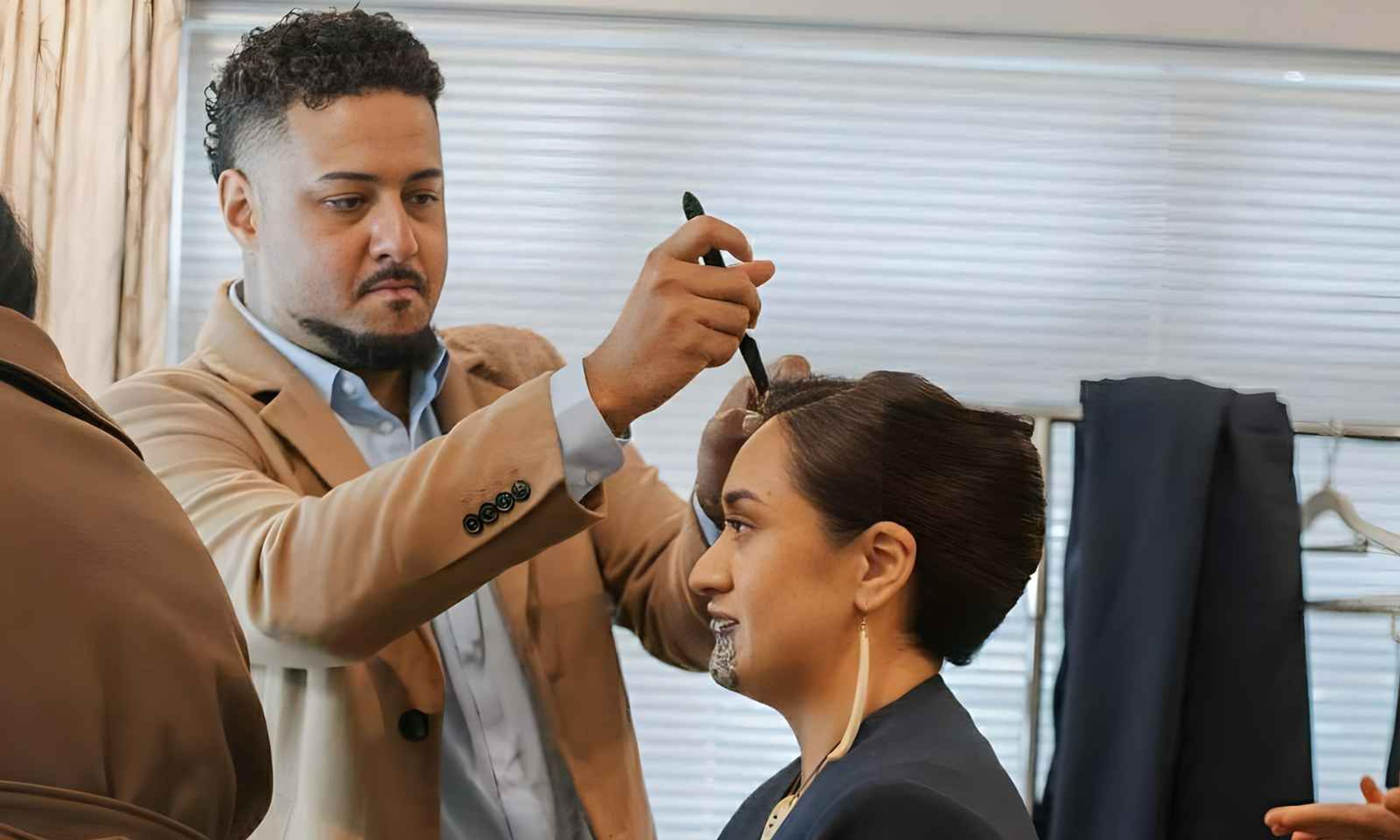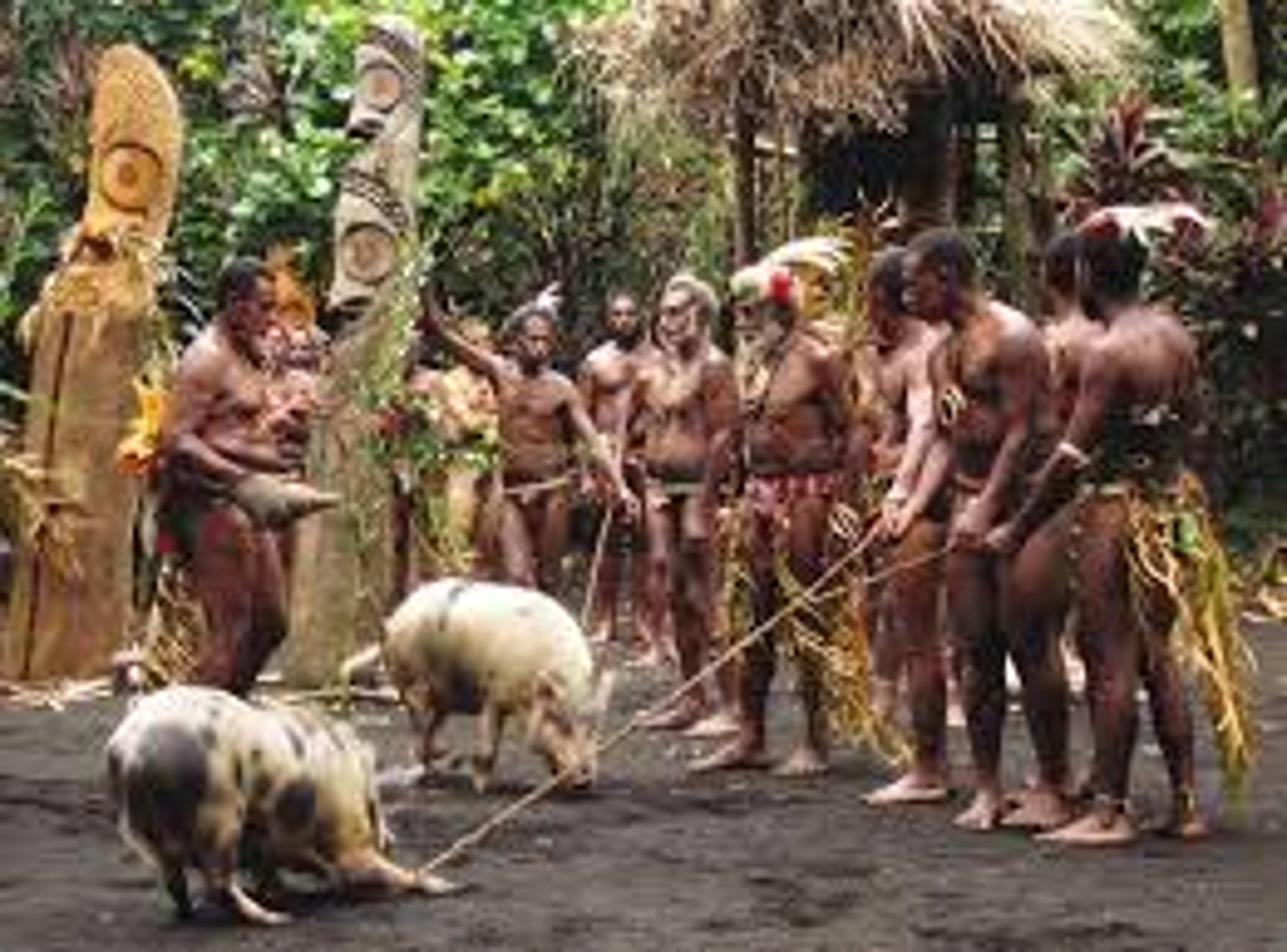

Lefaoali'i Dr Dion Enari (left) and Dr Sione Vaka (right) / Photo: Dion Enari & Sione Vaka
‘We need more Pacific academics’
Two Pacific researchers who have recently delved into youth wellbeing say there needs to be more scholars like themselves.



From the friendly isles to Koroneihana: The Tongan hairstylist trusted with a Queen

Ancient DNA shows how Pasifika carried pigs across the ocean



Pacific Warned: Global powers will act if island nations remain weak

From the friendly isles to Koroneihana: The Tongan hairstylist trusted with a Queen

Ancient DNA shows how Pasifika carried pigs across the ocean

Sāmoan and Tongan academics – Lefaoali'i Dr Dion Enari and Dr Sione Vaka – are calling for more young Pacific people to take up academic research.
This call follows after Lefaoali'i and Vaka shared their insights on a collaborative research paper published earlier this month called Cultural connection key to wellbeing for Pacific diaspora youth.
Their research showed that culture plays a huge role in positively impacting the wellbeing of Pacific youth living in New Zealand and Australia.

Lefaoali'i Dr Dion Enari and some youth in Brisbane as part of the Griffith Pasifika Association 2014 / Photo: Dion Enari
Born and raised in Australia and Sāmoa (from the villages of Malaela, Vaiala, Vaiusu, Nofoali’I, Lepa and Safune), Lefaoali'i is a senior lecturer at the School of Sport and Recreation at AUT University.
While Vaka, who was born in Tonga, is the Poutumatua Pasifika Tausisoifua Associate Professor for Nursing at the University of Waikato, and hails from the villages of Neiafu (Vava'u), Lofanga (Ha'apai) Lapaha and Longolongo.
Stats NZ data showed that 93 per cent (274,806 people) of NZ’s Pacific population live in the North Island and 66 per cent reside in Auckland. And of that Pacific population, Samoans make up the largest contingent, followed by Tongans, Cook Islanders and Niueans.
Their research showed New Zealand-born Pacific populations are at higher risk of developing mental illness compared to island-born migrants to New Zealand.
Their research also highlighted that “there are a high number of Pacific young people who identify themselves with several ethnicities”.
“This contributes to challenges with identity which heavily influence and impact on mental health,” said Vaka.

Dr Sione Vaka with the Tonga National University / Photo: Sione Vaka
But Vaka said incorporating Pacific cultural values into the education and health sectors would have a positive impact on young people’s wellbeing.
He used his example of moving to New Zealand where his cultural values helped him navigate New Zealand’s more individualistic society.
“With our Pacific interpretations of health and other stuff, it's very much focused on collectivism and relationships. Our culture, our children and youth … tend to struggle a lot in terms of going to school, going to work, and in New Zealand society.
“If we appreciate the Pacific culture … our young people and our Pacific people would engage more in the education system, the health system,” Vaka said.
Lefaoali'i said one positive aspect from their research was how unapologetic Pacific youth are about their culture and identity, compared to earlier generations.
“We found throughout our study … the Pacific youth that we had come across were wholeheartedly, unapologetically Sāmoan, so unapologetically Tongan, and so unapologetically Pacific, which was somewhat of a paradigm shift if you looked at Pacific confidence and that same ability to forthrightly claim their identity in the diaspora wasn't necessarily as strong as it is now,” Lefaoali'i said.

Dr Sione Vaka with Dr Ma'u and Dr Kautoke / Photo: Sione Vaka
Lefaoali'i and Vaka also stressed the need for more young Pacific people in academia.
“We are trying to revive some of our own Pacific ways,” Vaka said.
“[By]incorporating young Pacific researchers into the field because we need to make research much more attractive to our young people and let them come because it's been far too long that our topic, our ways of doing things have been researched by non-Pacific people.
“It is about time for us now to stand up and do research within our own space.
Lefaoali'i adds that academia is where policy change starts.
“I suppose if you want to be an advocate of change in terms of policy … we need you in academia … we need more Pacific academics,” he said.
“We need more Pacific professors and more Pacific academic doctors, so we can have the power to change the education system here in New Zealand today.”
Read the full research paper by clicking on the link below:
https://www.journal.mai.ac.nz/10.20507/MAIJournal.2024.13.1.14